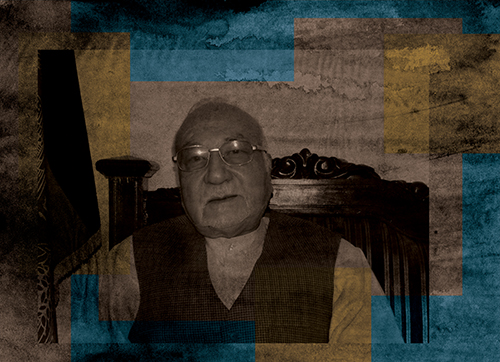Mohammad Ismail Qassemyar is a jurist who formerly headed the Public Security and Public Rights Courts of the Supreme Court and taught constitutional rights at university for seven years.
Have your rights ever been violated?
I was head of the Public Security and Public Rights Courts of the Supreme Court under Mohammad Daoud Khan. Thirteen days after the communist coup led by Mohammad Taraki, I was dismissed and imprisoned for more than a year. After that, I was kept under house arrest for a considerable period of time.
What are the important achievements of the new era in Afghanistan?
The present is inextricably connected to the past. One of the major achievements we have seen during our lifetime was the people’s uprising against the Soviet Union, one of the major powers in the world which led to that power’s disintegration. Our crusade against that power and its puppet regime in Afghanistan prompted revolutions by small and large countries around the world to claim their independence and sovereignty from the Soviets.
We have also witnessed remarkable achievements in urban development, education, health services, and women’s issues. The most important achievement of the new era is the establishment of a government in accordance with modern criteria. For the first time in Afghanistan, a Constitution was established, based on the separation of powers and universal criteria.
What do you fear most today?
My worst fear is that the pillars of national unity may crumble. In that case, we would move towards disintegration, no matter what we wish. My other fear is that the mafia might gain more influence in the political and economic system.
What are the biggest challenges facing Afghanistan?
One of biggest challenges is the absence of national sovereignty. Unfortunately, our politicians, led by the President, have failed to establish and develop sovereignty. Our system is plagued with extensive and systematic corruption. Nobody can deny this. Poverty and unemployment have paralysed the lives of most Afghans.
Will the present-day Afghanistan allow a recurrence of the closing of schools to girls and the blocking of women’s social participation?
That is very unlikely. I don’t think it will happen again.
Have the rights of any of your female family members ever been violated?
There is a mild type of violence in our family. By that, I mean that some members of the family behave in a way, for example raising their voice, swearing and making threats that have negative impacts on the women in the family.
Which factors deter women from participating in social, economic, political and cultural spheres?
One such factor is the tribal and ethnic structure that prevails in our social relations. Families adhere strongly to these customs and rarely allow them to be modernised. And in this way, the patriarchal mentality that underlies those customs has been sustained. Parents still decide who their daughter, or even their son, should marry and under what conditions they will get married. Extremist interpretations of Islam have laid the groundwork for the suppression of women and their subjection to violence.
What do women want?
They want to gain knowledge about Islamic rights. There are very few rights that Islam restricts for women. Women also aspire to better education, including about their religious rights, and employment.
Which sources and centres of power can women rely on to promote their rights and demands?
The Constitution is the most important source for women’s rights. Women can achieve their political, economic, social and civil rights by relying on the Constitution.
What have you done in your personal and professional life to fight against discrimination?
I have had an important role in all the processes of formulating the civil codes since the time of Daoud Khan. Under him, I was member of a committee that worked to develop women’s rights and status in the society. I have fought to fulfil the rights of women in the light of the sharia and Islamic values.
Do you have a specific message to share?
The key to our success, as testified by history, is our national unity. We must protect our Islamic unity and brotherhood and adhere to it.
“Unveiling Afghanistan, the Unheard Voices of Progress” is a campaign by Armanshahr and FIDH, which explores views held by Afghan civil society actors. Over 50 days, 50 influential social, political, and cultural actors hope to spark conversation and debate about building a society that is inclusive of women’s and human rights in Afghanistan.
Follow 50 interviews drawn from the “Unveiling Afghanistan campaign” daily on the Huffington Post. Follow Unveiling Afghanistan on FIDH Twitter: www.twitter.com/fidh_en


